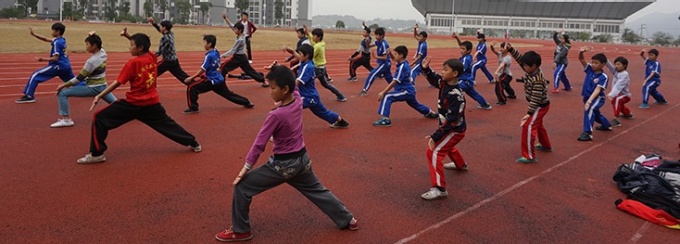Undergraduate Overview

Asian Studies courses and degree programs prepare students to work and live in a world where Asian cultures, societies, and economies play an increasingly important role. UB Asian Studies majors and minors find job opportunities in international business, government service, non-governmental organizations, communications, international development, and the arts.
By studying Asian civilizations and contemporary societies, we come to understand a significant part of humanity and acquire insight into ourselves. Our Asian Studies courses explore the many facets of Asian history, politics, culture, and societies. For more information on what Asian Studies has to offer, contact the Asian Studies Program.
The central mission of the Asian Studies undergraduate program is to provide students with information and methods to understand and analyze Asian civilizations and contemporary societies. Asian Studies courses help students develop language proficiency, acquire cultural knowledge, and appreciate non-Western perspectives. As a rigorous liberal arts major, the program cultivates students’ abilities to analyze texts, develop and evaluate arguments, write and speak clearly, and understand and apply varied disciplinary theories and approaches. This combination of Asia content, interdisciplinary methods, and practical skills will help prepare our majors for life in the twenty-first century, and for careers in Asia and with people from the countries and regions of Asia.
Asian Studies Student Stories
Several of our AS students are profiled throughout our website. Click on their names to learn more about their experiences at UB, with Study Abroad, and in their later careers.
AS Learning Outcomes
We have developed a clear statement of learning outcomes. These describe the skills our majors should develop, the broad content areas about which they should be knowledgeable, and the intellectual and personal growth they should experience.
Graduating Asian Studies majors should be able to:
- Communicate clearly and persuasively in written and spoken English
- Read and analyze texts and non-print sources carefully and critically
- Use primary and secondary sources to develop original arguments and analysis—including sources in a language other than their native language
- Speak, listen, read, and write proficiently in an Asian language other than their native language at the intermediate level or higher
- Analyze how specific historical developments, cultural norms, socioeconomic and geographic contexts, etc. have shaped perceptions, practices, and products of individuals in specific Asian cultures
- Articulate connections and differences among the countries and peoples of Asia
- Demonstrate specialized, interdisciplinary knowledge of one Asian country or region
- Compare and contrast historical developments, philosophical traditions, cultural practices, and social and economic structures and norms of an Asian country with those of the United States
- Understand the terminology and methodologies of different disciplinary approaches to the study of Asia
- Appreciate the value of greater cultural exposure to one’s intellectual, professional, and personal development